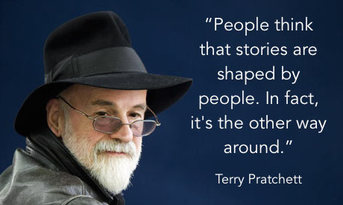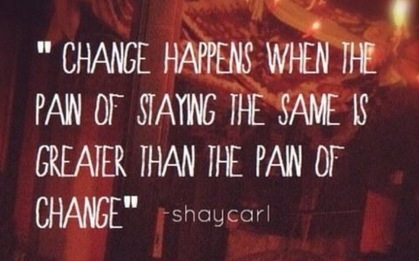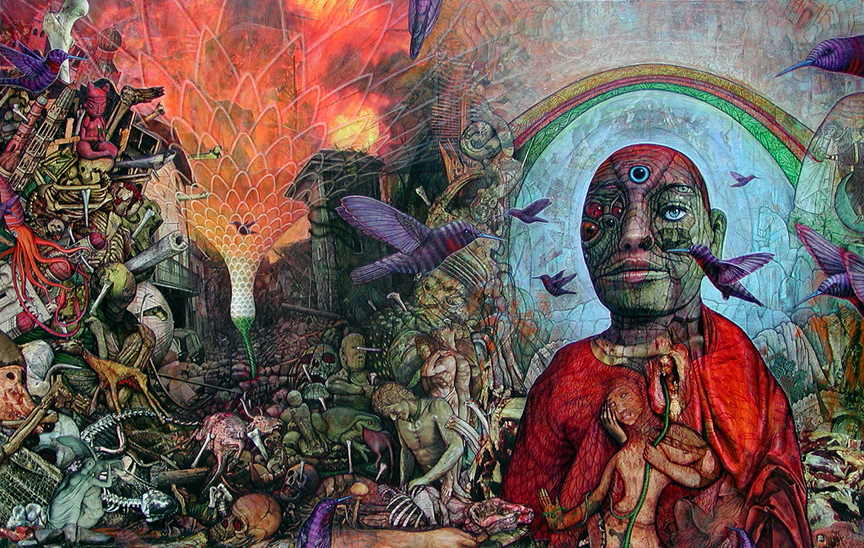I am a writer, a storyteller and a collector of stories… we all are in a way. We all write the stories of our life and collect the stories of others, listening to their experiences and insights. We write stories all the time, as individuals, as members of a family, a tribe, a workplace, a culture, a religion… Some stories stay with us over hundreds of years, others are short-lived and aren’t told for long. As we evolve, our stories evolve, too, and reflect our state of consciousness. That’s the beauty of storytelling and writing: you can change a story, rewrite it, take elements that work well and dismiss others that aren’t “serving the plot”.
Stories are usually born out of experiences. From the experience grows the impulse to share and tell the story. Writing a new story brings joy and excitement. It is often a plunge in the unknown, a process of exploring and experimenting, and as a writer you never quite know where it will take you. A new story also often evokes opposition and resistance, and might trigger suppressed feelings. Stories can be a great space to explore the shadow-side of things.
Stories can be entertaining, full of wisdom and knowledge, provoking, soothing, uplifting, horrifying, strange, quirky, spiritual, emotional, scientific… in short: they can illustrate many aspects of life and can create various atmospheres.
Stories are usually born out of experiences. From the experience grows the impulse to share and tell the story. Writing a new story brings joy and excitement. It is often a plunge in the unknown, a process of exploring and experimenting, and as a writer you never quite know where it will take you. A new story also often evokes opposition and resistance, and might trigger suppressed feelings. Stories can be a great space to explore the shadow-side of things.
Stories can be entertaining, full of wisdom and knowledge, provoking, soothing, uplifting, horrifying, strange, quirky, spiritual, emotional, scientific… in short: they can illustrate many aspects of life and can create various atmospheres.
Stories are very influential. They are at the base of human action: The stories we tell ourselves influence how we see and live our life.
Stories reflect the “Zeitgeist”, the culture, the “state of mind and heart” of the environment they are born in. Thus, naturally, stories change over time and there are a diversity of stories. As we change, so do our stories. However, there are people who resist change and want to hold onto old stories – because they are familiar, they are known, they create a safe place, because you know their dynamics and their ending. New stories scare them and make them feel uncomfortable. And there are others who are always looking for a “new plot”, trying to re-write and re-view old stories and write a new story with a new twist.
Stories reflect the “Zeitgeist”, the culture, the “state of mind and heart” of the environment they are born in. Thus, naturally, stories change over time and there are a diversity of stories. As we change, so do our stories. However, there are people who resist change and want to hold onto old stories – because they are familiar, they are known, they create a safe place, because you know their dynamics and their ending. New stories scare them and make them feel uncomfortable. And there are others who are always looking for a “new plot”, trying to re-write and re-view old stories and write a new story with a new twist.
As said before, strictly speaking there rarely are entirely new stories: they almost always link into previous experiences and stories. Yes, they bring new aspects, new storylines, new protagonists, new beginnings and endings into life, but the writers are usually inspired by the old ones. It makes sense to keep the parts of a story that are still working well, creating suspense, fun, excitement and transmitting wisdom and knowledge. Other parts might be dismissed, because they are simply outdated and not relevant anymore, not adding any value and meaning to the audience.
A storywriter and a cook have very similar creation processes: both have a handful of ingredients that they need to blend together in order to create a new story or a new tasty recipe. In the process, they both explore each ingredient to figure out new ways of combining them, as well as add some new "spices" and ingredients to the mix.
The creation of a story, of myths and legends, follows a cycle, like everything else in life. Stories also have a natural life span or cycle. History shows that there are “critical moments” when stories change. First a few individual writers dream up new stories. Then, around those critical points in time, more and more follow, until new stories become widely accepted and told “in the mainstream”. And over time, the new stories weather and become “old stories” – and a new cycle begins. Some stories last for thousands of years, others are short-lived or don’t find a broad audience.
A storywriter and a cook have very similar creation processes: both have a handful of ingredients that they need to blend together in order to create a new story or a new tasty recipe. In the process, they both explore each ingredient to figure out new ways of combining them, as well as add some new "spices" and ingredients to the mix.
The creation of a story, of myths and legends, follows a cycle, like everything else in life. Stories also have a natural life span or cycle. History shows that there are “critical moments” when stories change. First a few individual writers dream up new stories. Then, around those critical points in time, more and more follow, until new stories become widely accepted and told “in the mainstream”. And over time, the new stories weather and become “old stories” – and a new cycle begins. Some stories last for thousands of years, others are short-lived or don’t find a broad audience.
Writing a new story
As a species we are all co-writing the story of human existence. And, from what I can see, we are at one of those critical moments in time when the story changes. We are at an exciting and crucial point in the creation of a new story: there are a lot of new ideas and concepts swirling around, becoming increasingly perceivable and tangible over the last decade(s); the old stories are being reviewed and “tested” and some of them seem to have reached the end of their life cycle. Now is the time of collectively compiling the various ideas, protagonists and atmospheres, setting intentions, values and outlook before we can write a new storyline and create a new story.
As a species we are all co-writing the story of human existence. And, from what I can see, we are at one of those critical moments in time when the story changes. We are at an exciting and crucial point in the creation of a new story: there are a lot of new ideas and concepts swirling around, becoming increasingly perceivable and tangible over the last decade(s); the old stories are being reviewed and “tested” and some of them seem to have reached the end of their life cycle. Now is the time of collectively compiling the various ideas, protagonists and atmospheres, setting intentions, values and outlook before we can write a new storyline and create a new story.
So, writers of the universe, exciting times! With our combined skills we can change the story and rewrite it from a new perspective, providing a template for others to follow and build on. Let another cycle begin!
***
In 2014, there was a gathering at the Findhorn Community in Scotland, where people from all walks of life came together to dream up a new story - here is the link to an inspirational film that was made about the experience: http://newstoryhub.com/film/watch/



 RSS Feed
RSS Feed